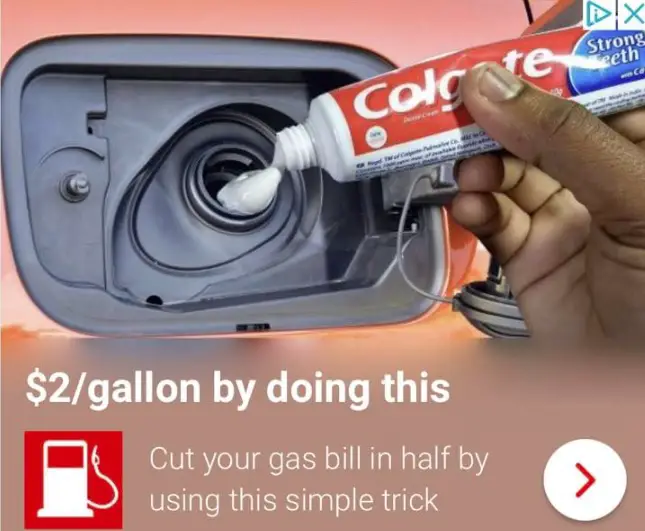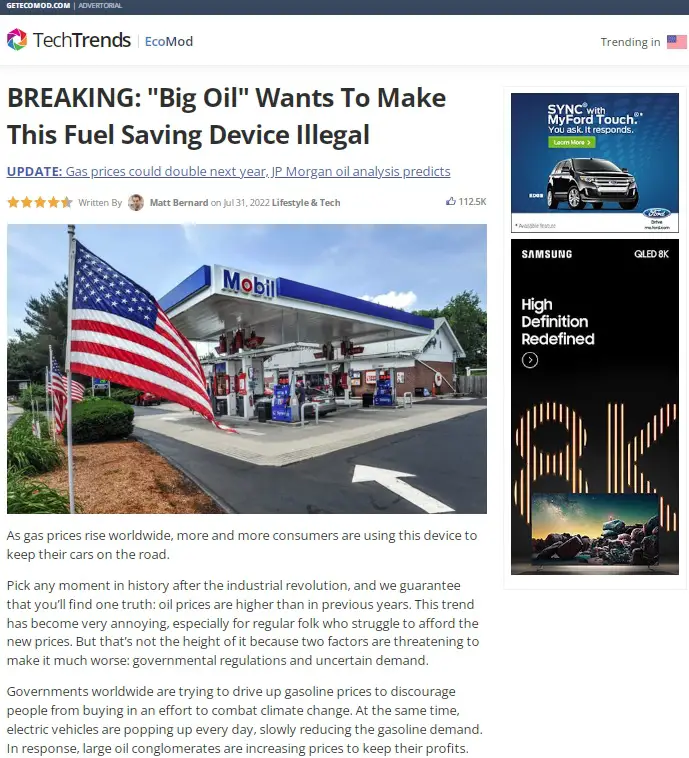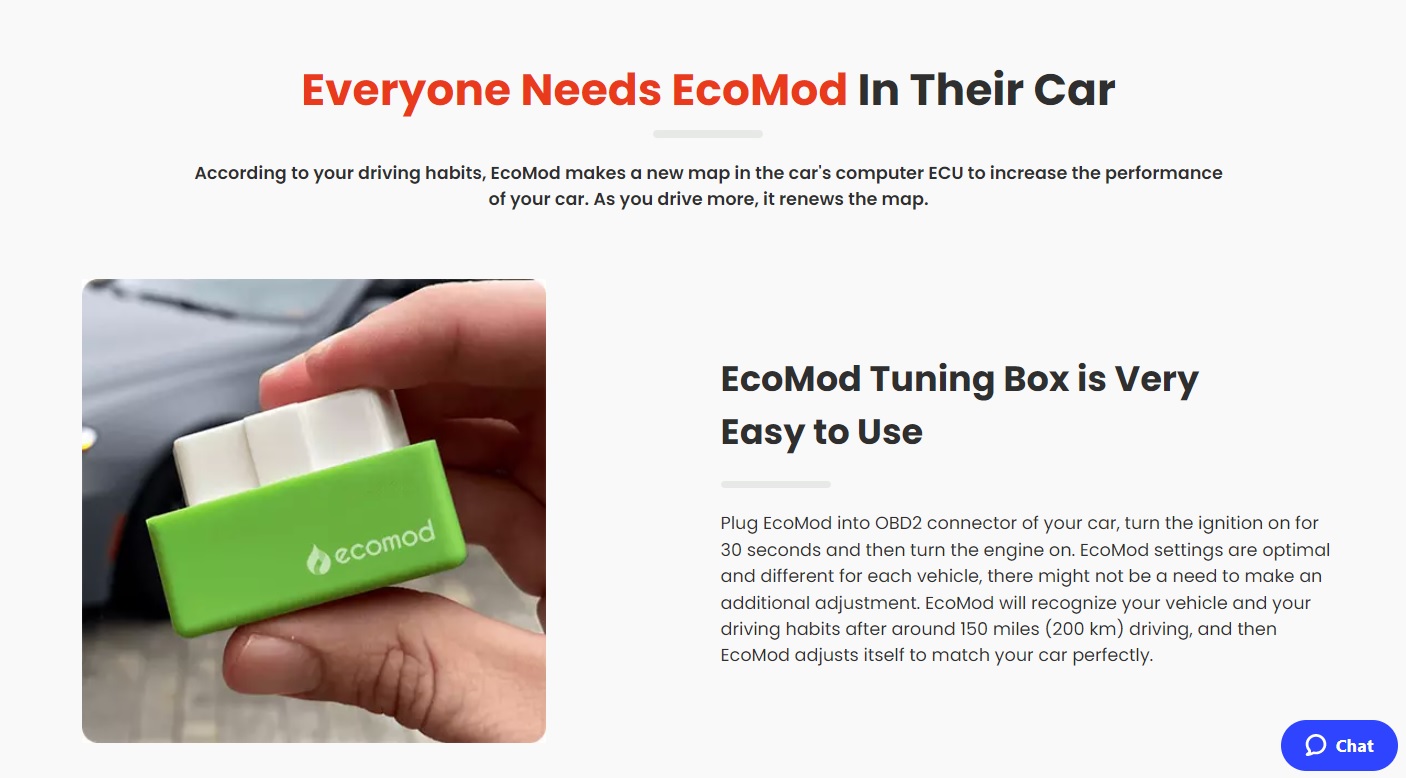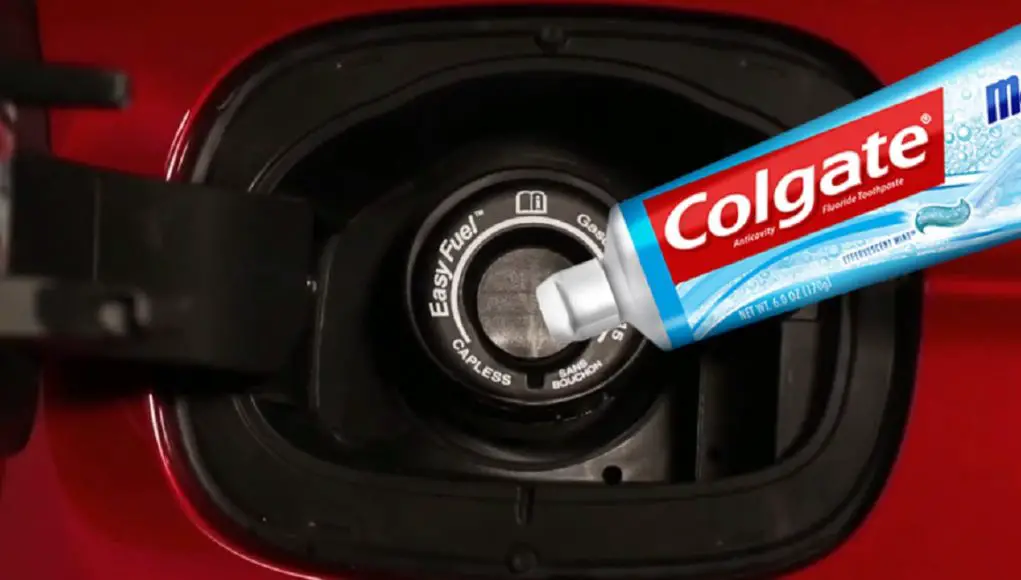Everything you need to know about that silly little ad of someone squeezing Colgate into their gas tank.
Browsing online and you’ve probably come across a ridiculous set of ads showing someone putting all sorts of questionable liquids into their gas tank in the name of saving gas.
The latest version of this ad shows someone squeezing toothpaste into the gas tank with the unbelievable claim that they’re “saving $2/gallon by doing this” and that you can “cut your gas bill in half by doing this.”
Here’s a screenshot of said ad.

This ad, like the one showing WD-40 or ketchup being squirted and squeezed into your gas tank, is all a ruse to get you to click, forwarding you to a fake advertorial (article linked here) for the scam OBD2 fuel saving device called the EcoMod Tuning Box. (site linked here.)
I’ve blogged about similar, if not the same types of OBD2 scam devices like the Optifuel Saver, Ecochip, and Ecotune.


Circling back to the ad itself and it goes without saying but a cocktail of toothpaste and gallons of your fuel of choice not only does absolutely nothing for your fuel economy (or anything in general,) it’s a potential death sentence for your fuel system.
According to an Australian Prescriber study of the contents of toothpaste, the general ingredients of toothpaste from largest composition to smallest is an abrasive 10-40%, humectant 20-70%, water 5-30%, binder 1-2%, detergent 1-3%, flavour 1-2%, preservative 0.05-0.5% and therapeutic agent 0.1-0.5%.
I’m going to assume the amounts of toothpaste ingredients with less than 3 percent composition are negligible when it comes to the harm it can cause to your fuel system.
But the abrasives, humectant, and water are causes for concern.
While fuel systems have several lines of defense against foreign objects, even tiny, grain-like ones, from entering your fuel lines, making its way to your injectors, these filters can only filter out so much.
Over time, especially if your car is older, those abrasives, commonly something like calcium carbonate, and silica gels, can further gum up your fuel sending unit filter sock and fuel filter, which can lead to engine hesitations and misfires.
Then there’s the humectant (commonly chemicals like sorbitol and glycerol.) They may crystalize, sinking to the bottom of your fuel tank.
Or, they may, like those abrasives, make their way to the fuel sock and fuel filter, further clogging those screens.
Finally, there’s the water in the toothpaste. While one tube-full of paste might not have enough water to cause serious damage, two or three tube-fulls might be enough water where the heat of the oil and engine does not evaporate it, sending some water past your fuel injectors into the combustion chamber.
Since water does not compress, the water might cause extra, unaccounted for pressures to the pistons and crankshaft, possibly damaging your engine.
Again, this is all hypothetical but I’m 100 percent sure adding toothpaste to your gas will not do anything for your fuel economy other than possibly worsen it.
A Youtube search reveals that at least one brave Youtuber attempted something similar to toothpaste into your gas tank, squeezing the teeth cleaner straight into the head of the engine via the oil cap.
While the toothpaste didn’t gum up the car’s fuel system, after several minutes of the paste working its way through the engine, the Youtuber observed added noise in the camshaft and valves.
It’s safe to conclude there are no benefits, fuel saving or otherwise, to putting toothpaste into your gas tank.
These obnoxious ads, as mentioned, are simply click bait to a scam product.



